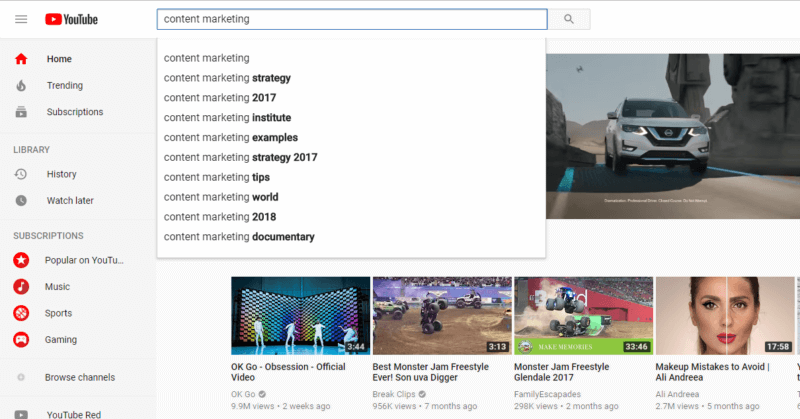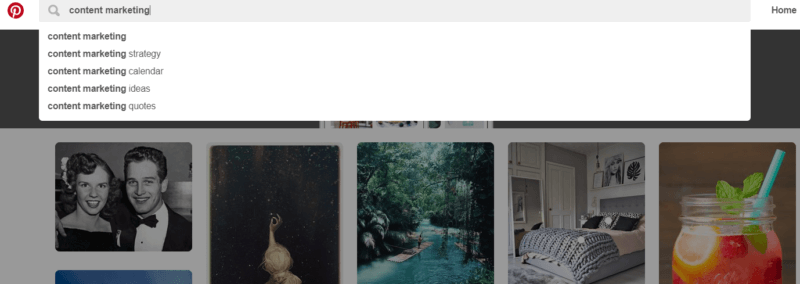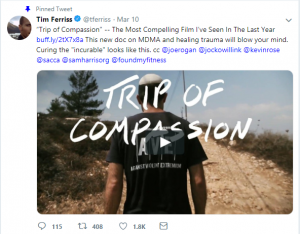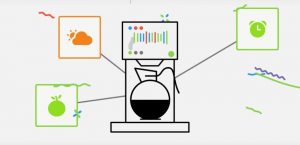If you want to up your content marketing game, you need to think about search engine optimization. Columnist Rachel Lindteigen discusses SEO best practices for content marketers.

When we talk about search engine optimization, most people think of Google. However, when we think of it from a content marketing perspective, there are three search engines. Content comes in many forms — written, audio, image and video — and because of this, we need to think about and optimize for multiple search engines.
What are the three search engines for content marketers?
- YouTube
Advanced Google optimization strategies
We all know Google is vital to SEO and content marketing. Every blog post or website page that’s created should be fully optimized so that it’s easier for it to be crawled, indexed and ranked. The easier we make it for Google, the more traffic we hopefully get to the content.
Google’s search engine has multiple parts. Are you optimizing for Google Image search? Any image or video you include on your website, in a blog post or on YouTube (video only) can be indexed by Google and returned in the image- or video-specific search results. Videos also often appear in the traditional search results.
How do you leverage image and video searches on Google?
The most important item is the targeted keyword. Adding the right keywords to your image or video file name will help you rank for image and video searches.
If you want to leverage the videos you’re creating for your website or blog and try to drive additional traffic through video search, then be very strategic about your keyword choice. Use terms people would search for with both written and video content.
Make sure you’re adding your brand name and targeted keywords to your image file names if you want to rank for both in the image results. Adding this information to your files will help you gain a more significant share of the search engine real estate.
The images and videos both appear on the traditional search engine results page, as well as their dedicated pages.
Why are YouTube and Pinterest search engines?
Aren’t YouTube and Pinterest just social channels? Why count them as search engines?
Yes, YouTube and Pinterest are social channels, but they’re also very high-traffic sites that have tons of searches daily. They’re perfect opportunities to have content discovered and consumed by a broader audience.
YouTube has over a billion users, more than a third of the world’s internet users. The potential reach is huge, especially if your target market includes people 18 to 34 because there are more active users in that age range in the US audience, on mobile alone, than any TV network. And Pinterest has more than 200 million active users every month.
If you’re not leveraging YouTube and Pinterest as part of your content marketing SEO plan, you are likely missing opportunities to grow your audience.
People visiting both YouTube and Pinterest are looking for new content to discover. They want images, videos, how-to guides, inspiration, recipes and more. They’ve likely never heard of your blog, or maybe even your brand, but if you know how to optimize for search in a way that’s specific to the channel, you can drive a lot of traffic for your website or blog.
YouTube and Pinterest search best practices
Like Google, both YouTube and Pinterest have suggested search options that help marketers and content producers understand what their audience wants. This predictive search feature helps us name and optimize our videos in a way that will resonate with the audience. It’s important to pay attention to the terms that the audience is using.

YouTube offers the opportunity to tag, add keywords and include a description or transcript of your video. You want to leverage these written content opportunities to help drive traffic to your video. Include a full-string website link to the page or blog post that accompanies the video.
What works on YouTube? Great targeting, YouTube specific keywords, how-to and educational videos, images that catch attention and bright colors that stand out.

While the keywords you use and your descriptions are essential to being found in a Pinterest search, your images themselves are the most critical item on your Pinterest pin. So, what works on Pinterest? Vertical pictures with copy overlay. Pins with multiple photos also work well. Pops of color or images that catch attention are helpful.
You can and should still include a targeted description on each pin. There’s some chatter that #hashtags are working on Pinterest for traffic. (I haven’t tested and verified this myself just yet, but I’ve heard it from several bloggers who are checking.) Finally, make sure you have a link back to the webpage or blog post with the image so people can find it easily.
Pinterest and YouTube are different from Google
Understand that people search differently on YouTube and Pinterest from the way they do on Google, so your keyword targeting may need to be adjusted accordingly. Spend some time in the predictive search area on both YouTube and Pinterest when you’re doing your keyword research for your blog post or webpage.
If you’ve been using Pinterest and YouTube as social media channels up until this point, try to think about them as search engines, add them to your SEO plans for 2018, and see what results you can drive. Make the content you’re already creating work harder.
Opinions expressed in this article are those of the guest author and not necessarily Marketing Land. Staff authors are listed here.
Marketing Land – Internet Marketing News, Strategies & Tips
(52)




